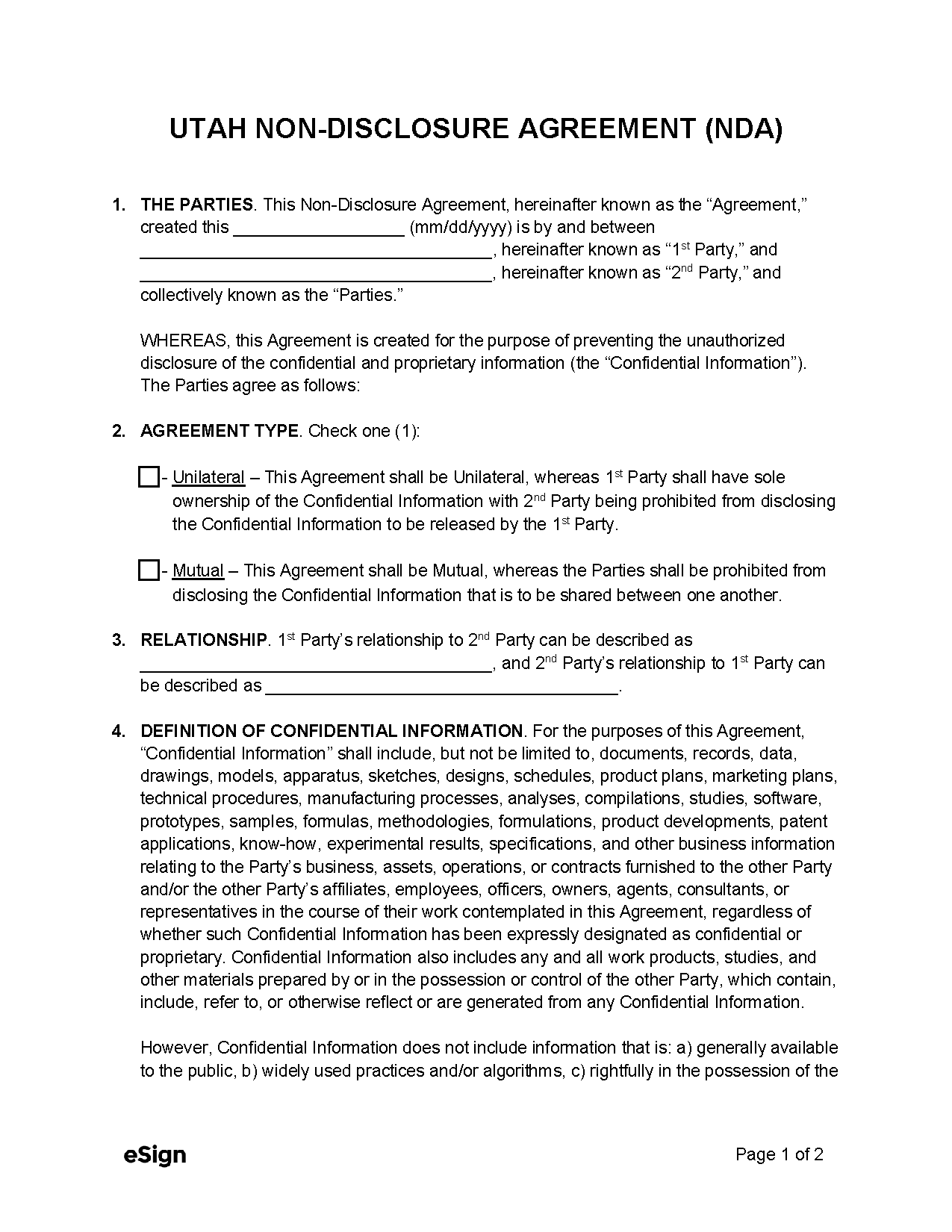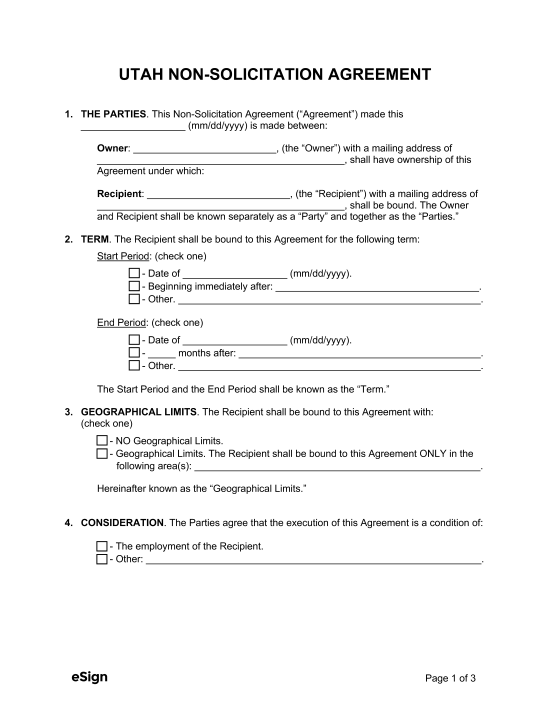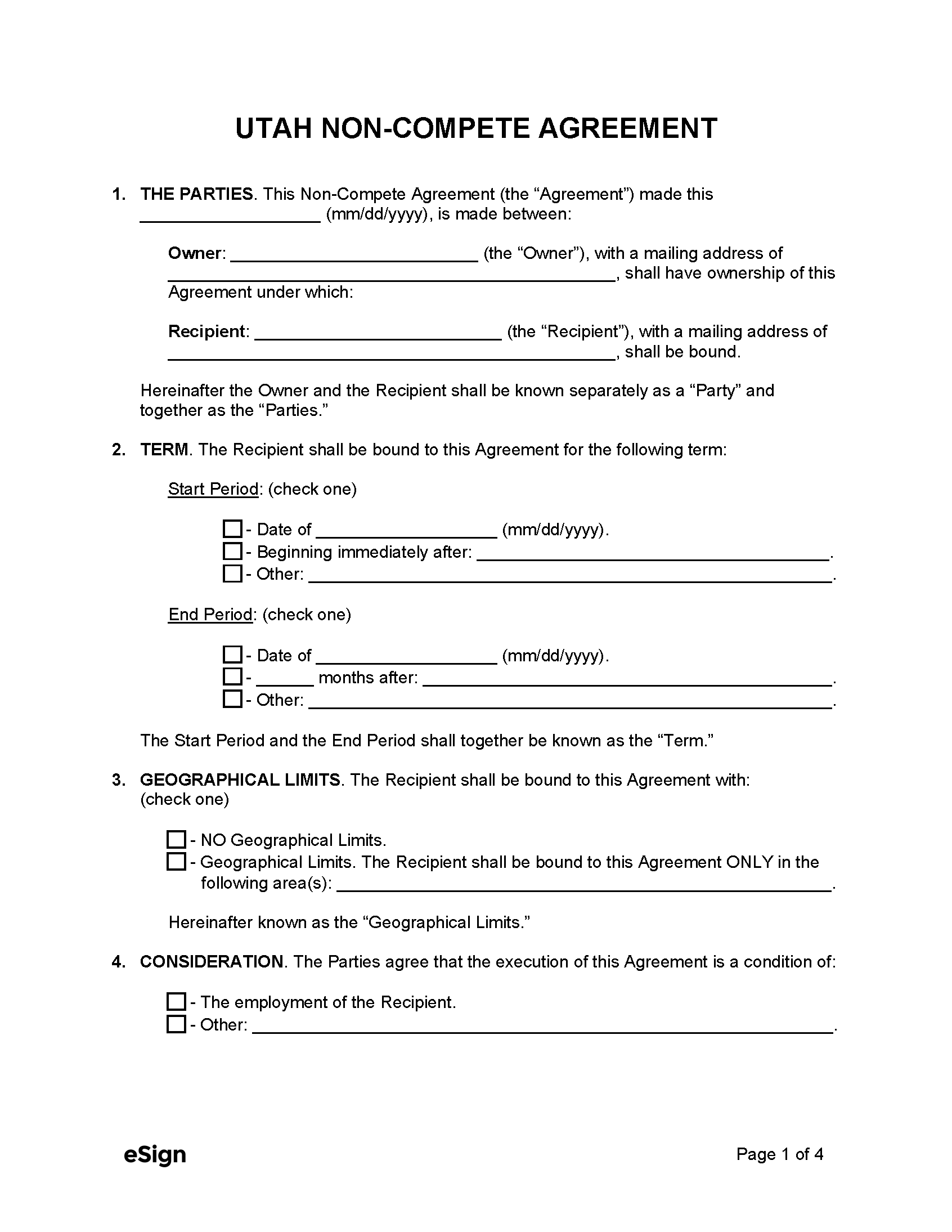Utah employer-to-employee non-compete agreements can’t last longer than one year from the date of termination. Contracts that impose a greater time restraint or are otherwise unreasonably restrictive are void and unenforceable.
Contents |
Enforceability in Utah
In Utah, non-compete agreements are enforceable contracts governed by the Post-Employment Restrictions Act and common law. For the agreement to be enforced in court, the employer must demonstrate that:[1]
-
- The non-compete restrictions are supported by consideration;
- The contract was negotiated in good faith;
- The non-compete restrictions are required to protect the business’s goodwill; and
- The time and geographical non-competition restrictions are reasonable.
When it IS Enforceable
- General employment relationships. A non-compete agreement is enforceable against an employee to protect the employer’s legitimate business interest (e.g., trade secret, training invested in employee).[2] They can also only be imposed if the employee provides special, unique, or extraordinary services.[2]
- Broadcasting employees. An employer may enforce a non-compete agreement against a salaried broadcasting employee if:[3]
- The broadcasting employee is paid at least $913 a week or a rate that qualifies for an exemption under the Fair Labor Standards Act, 29 U.S.C. Sec. 213(a), whichever is greater;
- The non-competition restrictions are a component of a written employment contract with a reasonable duration; and
- The broadcasting employee is terminated with cause or violates the terms of their employment in a way that makes them no longer eligible for employment.
- Selling a business. Non-compete agreements made in connection with the sale of a business may be enforced upon the seller.[4]
When it’s NOT Enforceable
- Lawyers. A lawyer cannot propose to make or enter into the following:[5]
- An agreement preventing a lawyer from continuing to practice law after their employment or contract terminates (not applicable to agreements concerning retirement benefits).
- An agreement in which the resolution of a client dispute includes a restriction on the lawyer’s ability to practice law.
Maximum Time Period
One (1) year. A non-compete agreement entered into after May 10th, 2016, cannot last longer than one (1) year after the employment relationship ends.[3] This rule does not apply to restrictions included in a mutually agreed upon severance agreement made at or after the employee’s termination.[6] It also doesn’t apply to restrictions made in conjunction with the sale of a business, provided that the restricted party receives something of value from the sale.[6]
- Broadcasting employees. Restrictions for broadcasting employees cannot last longer than the earlier of:[3]
- The day that the original employment contract containing the restrictions ends; or
- One (1) year from the end of the employment relationship.
Geographical Area
When deciding whether the geographical restrictions of a non-compete are reasonable, Utah courts will consider the type of clientele served by the employer and the location of the business.[7] The Utah Supreme Court previously upheld a two-mile restriction prohibiting a pharmacist from competing locally with their former employer.[8] Another case involving a cable company resulted in a nationwide restriction because the company’s customers were located across the entire country.[7]
Consideration
Sufficient consideration is established when a non-compete agreement is entered into at the start of an employment relationship.[8] Continued at-will employment (or the promise thereof) is another form of sufficient consideration.[7]
Sources
- Kasco Services Corp. v. Benson, 831 P.2d 86, 95 (Utah 1992)
- Robbins v. Finlay, 645 P.2d 623 (Utah 1982)
- § 34-51-201
- Electrical Distributors, Inc. v. SFR, Inc., 166 F.3d 1074, 1085-1086 (10th Cir. 1999)
- Utah R. Prof. Cond. 5.6
- § 34-51-202
- System Concepts, Inc. v. Dixon, 669 P.2d 421 (Utah 1983)
- Allen v. Rose Park Pharmacy, 120 Utah 608, 237 P.2d 823 (Utah 1951)
Related Forms (2)

Download: PDF, Word (.docx), OpenDocument

Download: PDF, Word (.docx), OpenDocument
